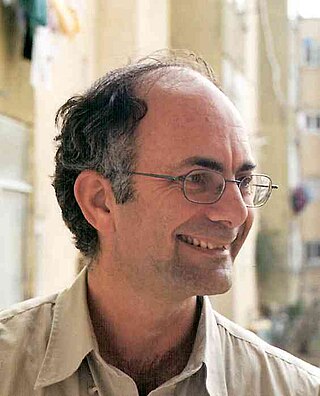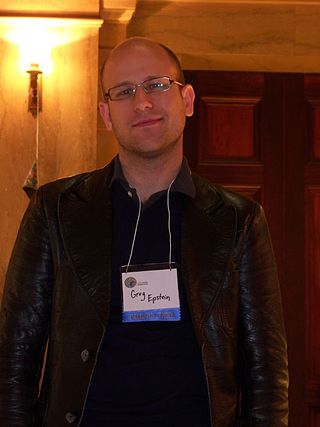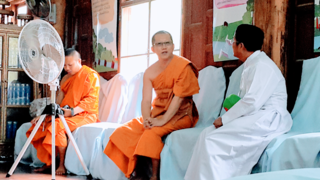
Comparative religion is the branch of the study of religions with the systematic comparison of the doctrines and practices, themes and impacts of the world's religions. In general the comparative study of religion yields a deeper understanding of the fundamental philosophical concerns of religion such as ethics, metaphysics and the nature and forms of salvation. It also considers and compares the origins and similarities shared between the various religions of the world. Studying such material facilitates a broadened and more sophisticated understanding of human beliefs and practices regarding the sacred, numinous, spiritual and divine.

Interfaith dialogue refers to cooperative, constructive, and positive interaction between people of different religious traditions and/or spiritual or humanistic beliefs, at both the individual and institutional levels.

David Shlomo Rosen KSG CBE is an English-Israeli rabbi and interfaith peacemaker. He was Chief Rabbi of Ireland (1979–1985) before relocating permanently to Israel in 1985. He currently serves as the American Jewish Committee's International Director of Interreligious Affairs. From 2005 until 2009 he headed the International Jewish Committee for Inter-religious Consultations (IJCIC), the broad-based coalition of Jewish organizations and denominations that represents World Jewry in its relations with other world religions.
The American Non-Governmental Organizations Coalition for the International Criminal Court (AMICC) leads the civil society movement for full United States participation in the International Criminal Court.
The International Association for Religious Freedom (IARF), formerly the International Association for Liberal Christianity and Religious Freedom, is a charitable organization that works for religious freedom around the world. It was founded in Boston, Massachusetts in 1900, and is the oldest international group that promotes dialogue between religions.

Yehuda Stolov, an Israeli, is a founder and the executive director of the Interfaith Encounter Association (IEA). He currently resides in Jerusalem with his wife, Lia and his three kids.
The Interfaith Encounter Association (IEA) is an Israeli-based non-profit organization founded and directed by Yehuda Stolov. Its primary purpose is to foster dialogue between different religious groups within the Holy Land. This is done on a grassroots level throughout Israel and the Palestinian Territories.

Greg M. Epstein is an American Humanist chaplain at Harvard University and the Massachusetts Institute of Technology who is the president of the Harvard Chaplains Organization. He is an ordained Humanist rabbi, and has been influential in American humanism as a blogger, spokesperson, adviser and author of the New York Times bestsellerGood Without God: What a Billion Nonreligious People Do Believe. Epstein was an expert on the first three seasons of the reality show "Married at First Sight."

According to the 2018 census, Buddhism is the largest religion in Thailand, practiced by over 94% of the population; Islam makes up 5% of the population. The Thai government officially recognizes five religions: Buddhism, Islam, Hinduism, Sikhism, and Christianity.

The Tony Blair Faith Foundation was an interfaith charitable foundation established in May 2008 by former British prime minister Tony Blair. Since December 2016 its work has been continued by the Tony Blair Institute for Global Change.

The Malaysian Consultative Council of Buddhism, Christianity, Hinduism, Sikhism and Taoism is a non-profit interfaith organization in Malaysia. Initially formed in 1983 as the "Malaysian Consultative Council of Buddhism, Christianity, Hinduism and Sikhism", it is composed primarily of officials from the main non-Muslim faith communities in Malaysia and acts as a consultative and liaison body towards more open dialogue and co-operation. It prioritizes round-table dialogue as its principal means towards conflict resolution amongst all Malaysians, irrespective of creed, religion, race, culture, or gender. In 2006, Taoists were officially represented for the first time in the organization and the name was changed to the current form in their Annual General Meeting on 27 September of the same year. Their current vision is represented through the slogan "Many Faiths, One Nation."

Marc H. Tanenbaum (1925–1992) was a human rights and social justice activist and rabbi. He was known for building bridges with other faith communities to advance mutual understanding and co-operation and to eliminate entrenched stereotypes, particularly ones rooted in religious teachings.
European Council of Religious Leaders (ECRL) is a European interreligious council for cooperation between senior leaders of religious traditions represented in Europe (Judaism, Christianity, Islam, Buddhism, Hinduism, Sikhism and Zoroastrianism)). The ECRL is one out of five regional interreligious councils within the global movement, Religions for Peace. The Council held its inaugural meeting in Oslo in 2002.
Hans Ucko is a priest of the Church of Sweden and a member of the World Council of Churches (WCC). He has been extensively involved in interfaith dialog, particularly between Christians and Jews. He has written a number of books on the subject.

The King Abdullah bin Abdulaziz International Centre for Interreligious and Intercultural Dialogue, mostly referred to as "The International Dialogue Centre – KAICIID" and globally known by its abbreviation, KAICIID, is an inter-governmental organization that promotes interreligious and intercultural dialogue to prevent and resolve conflict. It was established in Vienna, Austria, but relocated to Lisbon, Portugal on 1 July 2022.
Ephraim Isaac is an Ethiopian scholar of ancient Ethiopian Semitic languages and of African and Ethiopian civilizations. He is the director of the Institute of Semitic Studies based in Princeton, NJ. and the chair of the board of the Ethiopian Peace and Development Center.
The Council for Religious and Life Stance Communities is an umbrella organization for religious organizations in Norway to foster interfaith dialogue. It was established on 30 May 1996 and has fourteen members from Baháʼí, Buddhism, Christianity, Hinduism, Holism, Humanism, Islam, Judaism and Sikhism. STL has eight local chapters, in Bergen, Drammen, Hamar, Kristiansand, Oslo, Stavanger, Trondheim and Tromsø.
The Interreligious Coordinating Council in Israel (ICCI) was founded in 1991 to further understanding and communication between members of different faith communities and to build foundations for lasting fellowship.
"Our mission is to harness the teachings and values of the three Abrahamic faiths and transform religion's role from a force of division and extremism into a source of reconciliation, coexistence and understanding for the leaders and followers of these religions in Israel and in our region."

The Millennium Peace Summit of Religious and Spiritual Leaders was held in New York City between August 28–31, 2000. The meeting recognized the importance of religion to world peace and faith leaders’ commitment to peacekeeping, poverty relief, and environmental conservation. It preceded the Millennium Summit, which commemorated the 50th anniversary of the United Nations (UN).